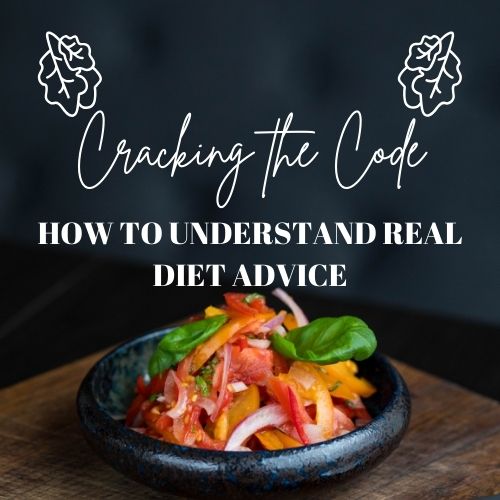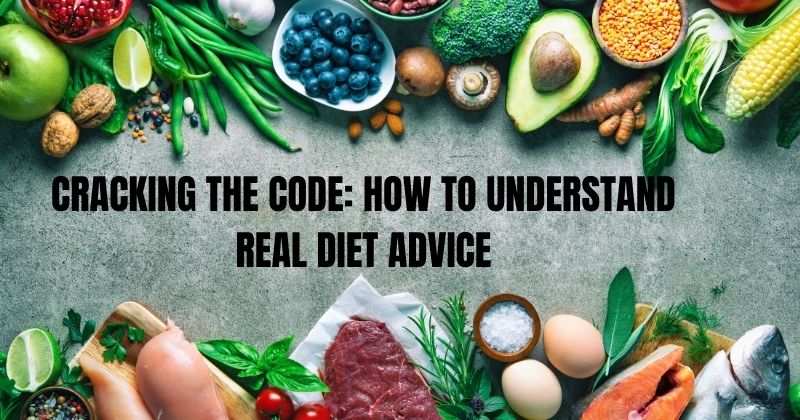Dive deep into the world of how to understand real diet advice. Discover how to sift through information, identify a diet that’s right for you, and embark on a realistic and healthy eating journey.
In a world overflowing with diet gurus, Instagram fitness influencers, and flashy supplements, understanding what constitutes real diet advice has become a conundrum. The information we get is often tainted with personal biases, misconceptions, and sometimes, outright myths. So, how does one navigate this complex landscape? The answer lies in knowing how to critically evaluate advice, understand what works for your body, and then approach dieting the right way. Let’s decode this mystery.
Moreover, with the digital age surging ahead, it’s become even more challenging to distinguish genuine guidance from mere trends. An array of diets pop up every day, each claiming to be the next big thing. Coupled with the allure of instant results and before-and-after transformations, it’s easy to get swayed. Yet, amidst this cacophony, cultivating a discerning mindset and staying grounded in scientific understanding is our strongest defense against misinformation.
How to Understand Real Diet Advice
Let’s start with the foundation: recognizing genuine advice. Here’s how:
- Source Verification:
- Trust, but Verify: It’s one thing to believe a friend’s suggestion, but another to blindly follow a celebrity’s “miracle diet”. Always cross-check information with credible health websites or consult professionals.
- Credentials Matter: Look for advice from registered dietitians, nutritionists, or medical professionals. They’ve studied this stuff!
- Evidence-Based Recommendations:
- Remember the old adage, “If it sounds too good to be true, it probably is.” If a diet promises rapid weight loss in days, be skeptical.
- Research. Are there peer-reviewed studies supporting the claim? For instance, the benefits of the Mediterranean diet are widely documented in scientific literature.
- Listen to Your Body:
- Your body is the best judge. If a diet or advice causes discomfort, it’s a red flag.
Tip: The balance between carbs, proteins, and fats can differ for each individual. So, it’s like wearing shoes. One size doesn’t fit all!

How do you know if a diet is right for you?
Determining if a diet complements your lifestyle and body is crucial. Here’s how to assess:
- Personal Goals and Health Needs:
- Are you looking for weight loss, muscle gain, better digestion, or overall well-being?
- Consider any health conditions. For instance, someone with diabetes might need to focus on carbohydrate intake.
- Sustainability:
- Can you see yourself following this diet in the long run? If not, it’s probably not the best choice.
- Cultural and Personal Preferences:
- If you’re a vegetarian, a meat-centric diet won’t work, no matter how trendy it is.
Analogy: Picking a diet is like choosing a life partner. It needs to align with your goals, be sustainable, and fit your personal preferences.
What is the correct way of dieting?
Let’s debunk some myths and set the record straight:
- No Starvation:
- Contrary to popular belief, starving is counterproductive. Your body needs fuel to function.
- Balanced Nutrition:
- Ensure you get a mix of proteins, carbs, fats, vitamins, and minerals. A rainbow plate, filled with colorful fruits and veggies, is often a good sign.
- Stay Hydrated:
- Drinking water is essential. Often, we mistake thirst for hunger.
- Flexibility Over Rigidity:
- It’s okay to indulge occasionally. What matters is the overall dietary pattern.
Tip: Think of your diet as a bank account. Occasional indulgences are fine, as long as you balance it with healthy choices most of the time.
How do I start a realistic diet?
- Set Clear Goals:
- Rather than vague aims like “I want to lose weight”, aim for “I want to lose 10 pounds in 4 months”.
- Gradual Changes:
- Don’t overhaul your diet overnight. Start by incorporating more veggies, cutting down on processed foods, and so on.
- Keep a Food Diary:
- This helps you be aware of what you’re eating and track your progress.
- Don’t Go it Alone:
- Share your goals with friends or family. They can offer support and hold you accountable.
FAQs
- Q: How often should I change my diet?
- A: It depends on your goals and how your body responds. However, consistency is key. Don’t jump from one diet to another without giving it time.
- Q: Are cheat days advisable?
- A: In moderation, yes. They can prevent feelings of deprivation, but don’t go overboard.
- Q: Is it necessary to count calories for effective dieting?
- A: Not necessarily. While calorie counting can be a useful tool for some, focusing on the quality and nutritional value of the food can often be more beneficial.
- Q: Can I trust all dieting apps or online platforms?
- A: Be cautious. While many apps and platforms offer valuable insights and tools, it’s essential to ensure that the advice aligns with recognized nutritional standards. Always cross-reference information.
- Q: How important is exercise in conjunction with dieting?
- A: Very important. While diet plays a significant role in weight management and health, incorporating regular physical activity can enhance results, boost mood, and improve overall well-being.
Conclusion:
Cracking the code of [How to Understand Real Diet Advice] isn’t rocket science. It’s about being informed, listening to your body, and approaching dieting with a sense of balance and realism. Don’t be lured by quick fixes and always prioritize your well-being. In an era overflowing with information, discernment is your most valuable asset. Remember that everyone’s body and needs are unique; what works for one might not work for another. Stay curious, ask questions, and never hesitate to seek professional guidance when in doubt. Your health journey is a marathon, not a sprint; consistency and patience will pave the way.
Key Takeaways:
- Always verify the source of diet advice.
- Choose a diet that aligns with your goals and preferences.
- Remember, dieting is a journey, not a race. Stay committed and patient.
Remember: Health is wealth! Make informed choices for a happier and healthier you
Recommended Post For You
- Real Diet Advice: Transformative Tips Beyond the Hype
- The Real Deal: Unveiling the Benefits of Real Diet Advice
- Real Diet Advice: Your Key to a Healthier Lifestyle
- Top 3 Misconceptions About Real Diet Advice – Debunked!
- Debunking Myths: The Real Facts About Real Diet Advice
- Is Real Diet Advice a Game-Changer? Truth Revealed!
- Boost Your Health with These 7 Real Diet Advice Tips
- Master Your Meals: Real Diet Advice for Meal Planning
- Why ‘Real Diet Advice’ Isn’t As Scary As You Think!
- Stop Guessing: Get the Real Diet Advice You Deserve
Reference Links for Further Reading
- Mayo Clinic: Choosing a Diet That’s Right for You
- WebMD: 10 Tips for Finding the Best Diet That Works for You
- Today Show: How to Pick a Diet That’s Right for You, According to Nutrition Experts
- Find a DO: Diet Quiz – Which Diet Suits You Best?
- National Institute of Diabetes and Digestive and Kidney Diseases: Choosing a Safe and Successful Weight-Loss Program
